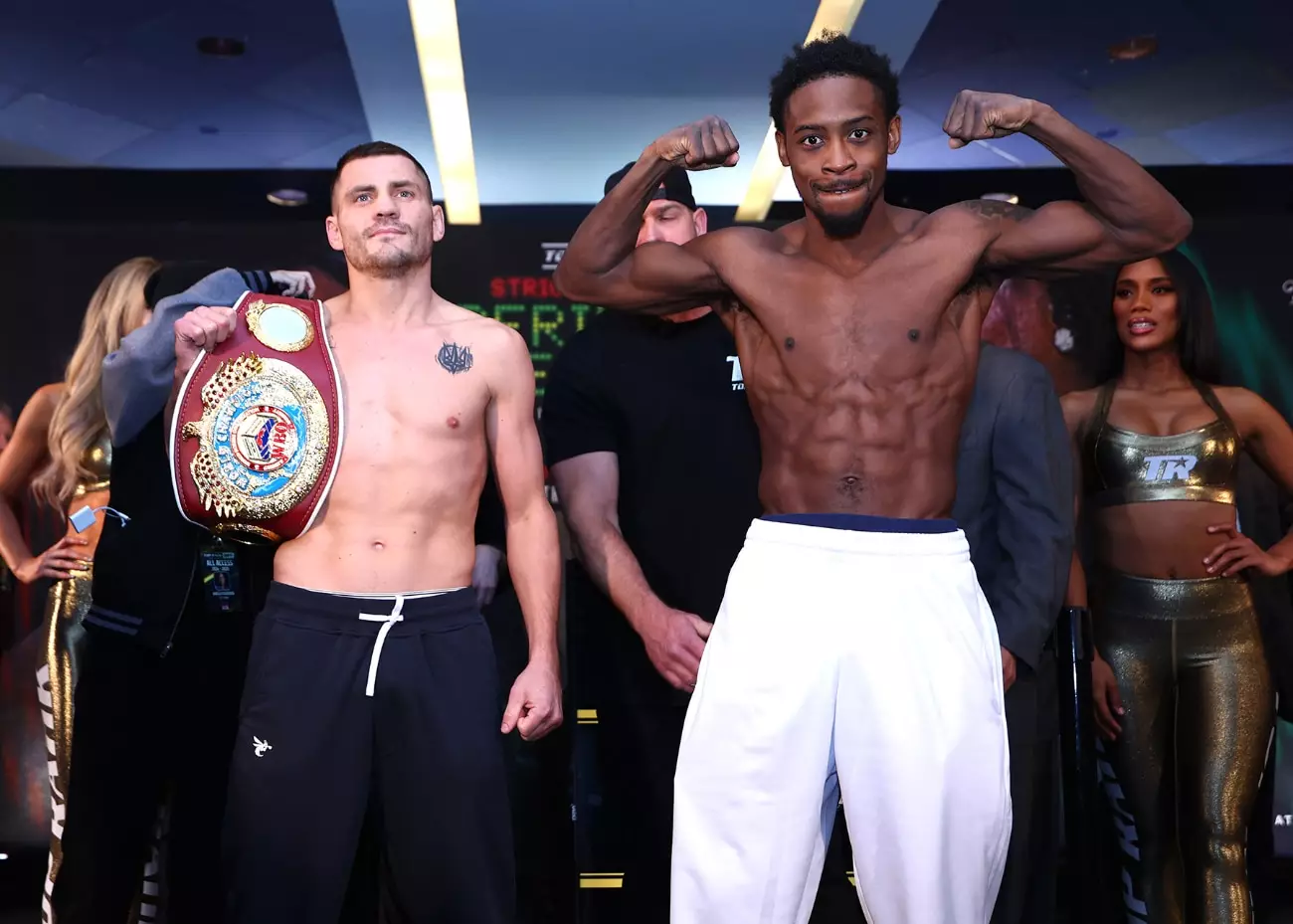In the world of boxing, emotions often run high, and rivalries can lead to tensions that spill over into highly publicized altercations. Keyshawn Davis recently found himself embroiled in such a controversy when he accused fellow fighter Teofimo Lopez of a racially insensitive prank. It was revealed that Lopez allegedly sent a box of bananas and watermelons to Davis’s hotel room—an action that Davis interpreted as a racist slight. This incident not only showcased the fragility of relationships within the sport but also highlighted the weighty implications of seemingly trivial actions, especially in an arena that thrives on image and public perception.
Davis’s immediate reaction was to label Lopez a “racist” and to publicly declare that he would refuse to fight him. For Davis, the notion of facing Lopez, who is previously unrivaled in terms of marquee value, became tied to a broader condemnation of racism. He asserted that agreeing to fight Lopez would only bolster Lopez’s financial standing, thereby allowing the alleged bigot to profit from their bout. This public refusal to engage in a fight raises questions about how professional athletes navigate not only their careers but also their moral stance in an industry often riddled with misconduct.
To further complicate the situation, Davis suggested that Lopez’s motivations for pursuing a fight were deeply rooted in financial necessity rather than competitive drive. With rumors suggesting Lopez may be grappling with tax issues, Davis insinuated that Lopez was in a state of desperation, looking to “cash out” with a significant payday. This assertion draws attention to the economics of boxing—an industry where fighters must constantly weigh their worth against the impactful decisions made in the ring and beyond.
Interestingly, Davis’s remarks reveal a layered understanding of the fight landscape. While Lopez had expressed interest in a unification bout against IBF champion Richardson Hitchins, Davis dismissed this potential matchup as “not big enough,” indicating a strategic assessment of Lopez’s current standing. The underlying suggestion is that Davis believes Lopez’s stock has dwindled, thus raising the stakes of a fight between them, should it ever come to fruition.
Amidst the drama, Davis also felt the need to extend an apology to WBO lightweight champion Denys Berinchyk, albeit in a roundabout fashion via social media. His previous misattribution of the racial gag to Berinchyk was a significant misstep, illustrating how easily rumors and assumptions can undermine reputations in a hyper-competitive environment. The moment offered a stark reminder of the precarious balance athletes must maintain between public persona and personal integrity.
The upcoming fight between Davis and Berinchyk for the WBO lightweight title poses a pivotal moment for Davis’s career. Should he falter, the ramifications would extend beyond just the belt—his public stances and statements, particularly in regard to Lopez, would require reevaluation. Notably, his rhetoric hints at a potentially unyielding ego that risks alienating valuable opportunities, not just with Lopez but within a broader field of potential opponents.
Self-Reflection in a Competitive Sphere
Davis’s invective against Lopez is couched in a confidence that almost borders on hubris. Describing himself as a megastar who has proved himself against competitors of a lesser caliber, Keyshawn’s words could benefit from a more tempered self-assessment. While he is undoubtedly a talented fighter, overestimating one’s own position within the sport can lead to detrimental consequences, particularly when leveraging public controversies to maintain relevance.
Moreover, in a landscape laden with distractions, including social media and personal rivalries, emerging young boxers must be cautious about how they project their messages and manage their public relationships. Failing to recognize this delicate balance can result in a myriad of setbacks, as the boxing community is one that respects both skill and character.
The ongoing dispute between Keyshawn Davis and Teofimo Lopez serves as a compelling reminder that conflicts in high-profile sports extend beyond physical matches. It is a narrative woven through tensions and social sensitivities, with financial and moral implications that could shape each athlete’s trajectory in unpredictable ways. Davis’s principled stand against perceived racism might earn him respect among his peers, but, should he stumble this Friday, the ramifications could echo throughout his burgeoning career.


Leave a Reply